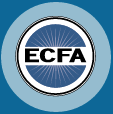The Issue
Become a member of Kenya Big Dream and help provide a future of hope for girls facing FGM and child marriage in Kenya
In many cultures, female genital mutilation (FGM)—also known as cutting—symbolizes the transition from girlhood to womanhood and is a valued traditional practice done on girls as young as 10 years old. It has devastating physical and psychological effects on girls. If you’ve seen World Vision’s award-winning film, Messania’s Story, you saw a first-hand account of the impact it can have on a woman’s life.
An estimated 200 million women and girls alive today have been subjected to FGM. In Kenya, FGM is a direct precursor to child marriage. Often, girls aren’t considered eligible for marriage until they’ve been cut, and families see marriage as a source of income. A bride price paid to parents by a girl’s husband can mean a great deal to a family in extreme poverty. Although significant progress has been made toward ending child marriage globally, about 650 million of the world’s girls and women were married before their 18th birthday.
Why is this work needed?
- In Samburu County, 86% of women between 15-49 (considered child-bearing ages) have undergone FGM.
- 77% were cut to become eligible for marriage.
- Primary school enrollment for girls is only 56%.
- Secondary school enrollment for girls is only 12%.
Through years of Child Protection work in West Pokot, Kenya, we’ve learned what works to end this harmful practice.
“In 1999, the prevalence rate of FGM was over 95% in Chepareria area of West Pokot. Today, it’s less than 10%.” Moses Chepkonga, Program Manager Kenya Big Dream
We’ve learned that a multi-sector approach is what is most successful to eradicate early forced marriage and FGM. It takes:
- Education. Early forced marriage can begin as early as 10 years old and often before age 14. Every year of secondary school is critical for the impact a young woman can make on her future as well as her community.

- Economic Empowerment. A primary reason FGM and early forced marriage exist is the bride price the family receives from the groom’s family. In some cases, this can be the difference between the family starving or not. Beginning with Empowered Worldview and finding your identity in God, fathers, mothers and children are trained in ways to contribute financially to and with their community.
- Government. FGM and early forced marriage is illegal in Kenya and must be enforced. Unfortunately, in rural areas this law is often ignored. World Vision advocates for children with government and local community-led groups (Citizen Voice & Action) to uphold and enforce their laws to protect children.
- Child Protection. World Vision has created an Alternative Right of Passage (versus cutting) with hundreds of girls and boys participating now each year. Through Channels of Hope workshops, faith leaders engage their congregations to take action and become champions and advocates to protect their children.
Your gift can provide the help and support needed to end the harmful practice of FGM and bring fullness of life to young girls in Kenya.
“I’ve witnessed transformed lives through changing culture . . . World Vision has been doing this in West Pokot, Kenya for 10 years.” —Margo Day, Retired VP of Education, Microsoft – World Vision National Leadership Council member
“I’ve seen firsthand that when young women’s lives are transformed, they in turn become powerful agents of change in their communities.” —Suzanne Broetje, World Vision Partner Executive Director, Vista Hermosa Foundation





Get The Word Out